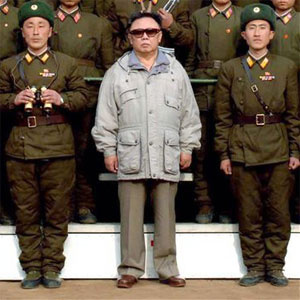North Korea Expects Six-party Talks!

IRD: North Korea suddenly announced that it is prepared to reopen the six-party talks without any preconditions. After the latest crisis in the Korean Peninsula, it is the first time that such a position has been adopted by the North Koreans. What is the North Korea’s goal in adopting this position?
NS: The position adopted by a country is usually influenced by the subject in which it is involved and the situation in which the subject is proposed. For example, here the position of North Korea to reopen six-party talks is seriously affected by the six-party relations, as well as the developments that have occurred in the region. As a result, North Korea thought that adopting a rigid stance on the agenda was a must in order to make their rivals satisfy North Korea’s demands.
North Korea now feels that the developments that have occurred have made the context favorable for negotiations, beneficial to the country. These developments can be considered as a threat to or an opportunity for North Korea. But I think Pyongyang feels that the upcoming opportunity can express sympathy and help political efforts to heal the East Asian region and partly Japan, due to events that occurred recently in Japan and the issues and problems resulting from the earthquake and tsunami. So this position is adopted under the influence of interpretations by North Korea from facing opportunities and threats.
IRD: In the six-party talks, apart from the two Koreas, the US, China, Russia and Japan also attended, and all played an effective role in the last crisis. What is the position of these countries toward the announced preparedness of North Korea to participate in these negotiations?
NS: All countries present at the six-party meetings tend to resolve the issues and problems peacefully through negotiation. It is natural that all countries will welcome this proposal, and the previous policy was to put North Korea under pressure to resolve issues through negotiation. Undoubtedly the announced preparedness of North Korea will be welcomed by those countries.
But it now seems that given the incidents in Japan, sitting at the negotiation table with regard to the concerns and problems in Japan seems rather early at this stage, and it will take at least one month to have six-party negotiations.
IRD: Given the current situation in Japan, is it possible that North Korea’s goal is public relations in adopting this stance?
NS: Yes. It was promotional too, but if North Korea merely wanted to take advantage of the propaganda aspect of this issue, it could announce its preparedness to send a rescue group, as a sign of goodwill toward Japan, to help earthquake and tsunami victims. Assuredly there is some benefit for North Korea to adopt this position, which can be of public relations use or based on the evaluations carried out before they announced their preparedness for negotiations.
IRD: Given the developments in the Middle East, Is it possible that North Korea feels more pressure to engage with the international community?
NS: There is no doubt that developments in the Middle East have an influence on all closed political systems, but the effectiveness depends on the conditions in the geographic area in which the country is located. North Korea is located far from the Middle East but may be affected by developments there more rapidly than that of the regional countries. But what is certain is that all countries that have a strict policy similar to Arab ruling patterns, namely monarchical systems, will try to provide a more liberal atmosphere for their citizens.
IRD: Given that some have considered the recent incidents in Japan as the third nuclear disaster in human history and the environmental concerns are expressed, can it be claimed that these concerns had an impact on this position?
NS: No. The importance of the nuclear plant explosion is that the world will take heed of the safety in nuclear facilities under construction and in fact, it is an experience for countries in building plants. However, the other effect is that there will be more emphasis on science and technology in countries that wish to have nuclear facilities. Countries need to secure nuclear facilities rather than to have them, because the leakage of nuclear facilities can create environmental disasters; therefore, perhaps there will be efforts to dissuade certain countries incapable of establishing and maintaining nuclear facilities safely.

